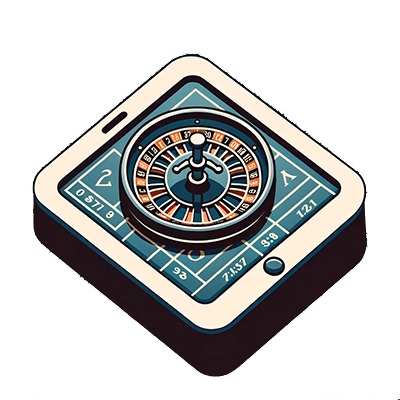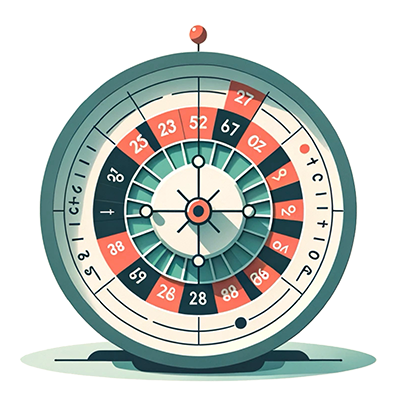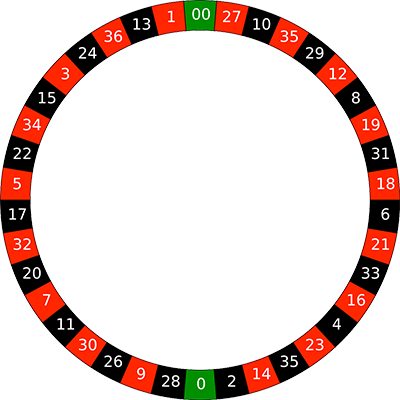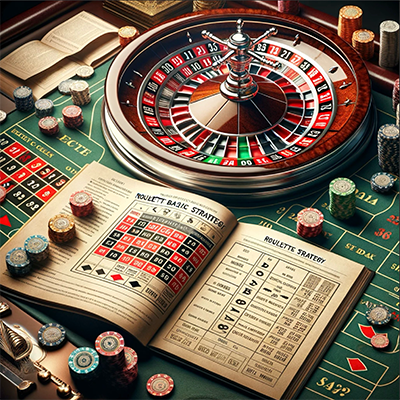Roulette History
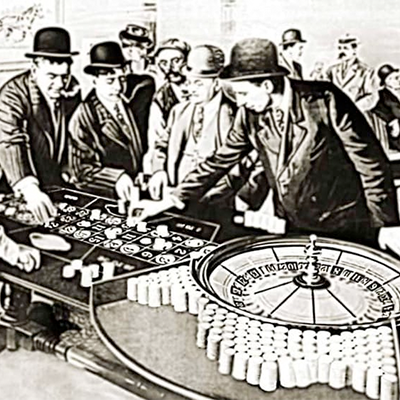
Table of Contents
The roulette wheel is a symbol of fortune and chance. But roulette as you know it boasts an extensive journey through time, making roulette history a fascinating study for both scholars and enthusiasts alike. From ancient Rome and Greece to France, the game is a puzzle to many historians. Still, roulette is a cornerstone of casino culture worldwide. This evolution reflects not only advancements in technology but also major shifts in gambling and social practices. In this article, we dive deep into the rich roulette history. We explore how Blaise Pascal mistakenly brought the roulette wheel to life to the digital incarnation of roulette in online casinos and how the Greek and Roman soldiers killed time playing this game.
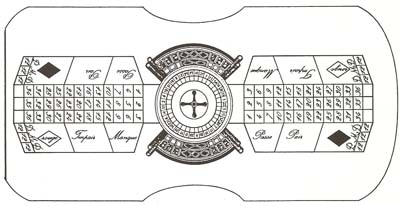
A trip down roulette’s memory lane
Roulette is a popular casino game that comes from the French word meaning a ‘mini wheel’. It has been said that Roulette was discovered in the 18th century. In the 17th century, Blaise Pascal made an original form of Roulette in his search for a continual motion machine.
The game requires you to predict where the ball will land once the wheel stops. Essentially, the wheel is divided into coloured and numbered pockets. The numbers range from 1 to 36, alternately coloured black and red, along with one or two green pockets marked 0 (and, in American roulette, 00).
However, the game wasn’t always like this. Its origins are somewhat contentious, but we’ll dig through every conspiracy. Let’s look at how roulette rose to popularity in different countries.
Ancient Rome
Many historians credit the history of roulette to soldiers in Rome. As is the case today with soldiers, there are many games and activities that keep these brave men and women occupied besides battling.
Gambling was one of these activities, and roulette was rather popular. But it wasn’t known as roulette back in the day. Only that the game was played in a similar fashion.
Soldiers would spin a shield that had written symbols on the inside. The shield faced down and an arrow was next to it. The soldiers would then bet on a symbol they believed would align with the arrow. Interestingly, soldiers in Ancient Greece also played the same game as they killed time off the battlefield.
Chinese Origins
Other historians believe roulette has its roots in China. In ancient China, there was a Chinese board game. On it were 37 small-sized animals imprinted on a magic square with 666 numbers.
Unfortunately, no one knows how the game was played. However, it’s believed that monks introduced a zero in the wheel by transitioning to a circle.
But remember, French roulette had a double and single zero from the beginning. Therefore, the Chinese origins don’t match up.
Roulette’s roots in France
The history of roulette starts in France, which explains the name of the game. However, the design and how to play it originated from two games enjoyed in Europe in the 17th century. They were Even Odd and Roly Poly. These two games required participants to bet on the outcome of a spinning wheel. There was another Italian game, Biribi, where a player needed to guess the ticket number drawn from a bag.
But the wheel used in roulette was invented by a French national, Blaise Pascal. The renowned physicist and mathematician stumbled upon this invention because the initial task was to come up with a perpetual motion machine. Furthermore, Blaise was also a known gambler.
A story from the past says that Francois Blanc allegedly made a deal with the devil to acquire secrets of the Roulette game since all the numbers that are on the wheel are 1 to 36 which equals 666, the mark of the beast. A little town called Homburg back in 1843 is where Francois and Louis Blanc had come to introduce the single 0 style Roulette wheel in order to go up against the other casinos that offered the regular traditional wheel that had the single and double zero house pockets on it.
Prince Charles of Monaco is also part of roulette history. The royal had financial problems and decided to use this game thanks to its growing popularity.
The birth of American roulette
The wheel-based game eventually landed on American soil in the 19th century. In the earlier years of the American Roulette, the numbers on the wheels were 1 through 28 plus a single 0, double 0 and an American Eagle. The Hoyle gambling books say that the single 0, the double 0, and the American Eagle are not bars. Even though when the balls fall on either of them, the banker indeed takes every thing that is on the table, except for the bets that are on one of the 0’s or the Eagle. With the eagle symbol, the house had a massive house edge of 12.9%, making it unpopular with American gamblers.
The wheel continued to evolve and eventually stuck with the double zero, which offers a higher house edge (5.26%). In the European Roulette, there’s a single-zero pocket, which offers a lower house edge of 2.7%.
Cunning inventions to beat the wheel
There will always be people looking for ways to tilt the odds in their favour and ultimately beat the system. One of the most incredible moments was in the 18th century. Englishman Joseph Jagger noted that the Casino de Monte-Carlo roulette wheels didn’t balance perfectly. As such, some numbers appeared more than others. Jagger would use a new-found scheme to place his bets. That move saw him sweep several tables worth 2 million francs in several days.
Some other players also tried to beat the wheel with a more daring move. Gamblers used magnets to drag the ball into a certain pocket by placing the magnet under the roulette wheel. However, this cunning move would only last a while, with gambling houses shifting to wheels placed on the table. This is the layout used till today.
The dawn of the digital era
At the beginning of the 20th century, the only casino towns of note were Monte Carlo, with the original single 0 French wheel, and Las Vegas, with the American double 0 wheel. Casinos began to flourish in the 1970s all around the world. By 2000, several hundred casinos were offering Roulette games worldwide. You can find the double zero Roulette wheel in the United States, South America, and the Caribbean.
In the 2000s, roulette became even more accessible thanks to the advent of the internet. In 1996, the first online casino was launched, and it has since grown to a multi-billion-dollar-a-year industry.
With the internet, players don’t need to go to physical casinos. Instead, a stable internet connection and a compatible device are enough to enjoy a wide variety of titles. However, there are two types of roulette you can find online: live roulette and online roulette.
Online roulette
This is more of a digital game, although it works in more or less the same way as the common slot machine in terms of result generation. The online roulette games use a random number generator (RNG). This RNG determines the result of the game, making it a random game. Besides, the RNGs are tested and certified by independent institutions to ensure they are fair.
With this difference, it means you’re playing against a computer algorithm instead of other players. While this is a downside, you have plenty of time to decide your next move since there’s no time limit. Similarly, you can start a game round once you’re ready.
With the game’s availability online, players can look forward to all types of the game. That includes American, French, and European roulette. Some of the top titles you can try include Zoom Roulette (Nucleus Gaming), French Roulette (NetEnt), and Booster Roulette.
Live dealer roulette
Online casinos may be mushrooming every day, but they lack something crucial: the aura and atmosphere of a physical casino. While playing at an online casino offers convenience and variety, it’s less engaging than playing at a land-based casino.
After the internet was born, several online casinos started offering live streaming for engaging gameplay. Initially, operators used a webcam to stream live images from a physical casino. To eliminate RNGs, online casinos introduced multiplayer gameplay.
But as expected, pioneers in any industry are bound to face challenges. One of them in this regard was the slow internet connection. Furthermore, the video quality was poor and online players couldn’t interact with the croupiers, thereby troubling the entire experience. It wasn’t until 2006 that a dedicated live studio was introduced. Players could interact with real croupiers at studios, with the first of its kind introduced by Evolution (previously known as Evolution Gaming).
By streaming the games live from a dedicated studio, players had a better view of the roulette table thanks to better camera placement. Furthermore, game providers introduced more cameras used to capture the action from several angles, thereby providing an interactive gaming experience. Players looking for a more engaging experience can opt for Lightning Roulette (Evolution), Mega Fire Blaze Roulette (Playtech), Quantum Roulette (Playtech), Luck Lady’s Roulette (Extreme Gaming), and many other top titles.
Conclusion
The history of the roulette wheel is a testament to the game’s enduring popularity and capacity for adaptation. Think about it. The earliest form of the game, before it was known as roulette, was in the 17th century. Soldiers in ancient Rome and Greece, Chinese monks, and mathematical experiments by Blaise Pascal in France, there’s plenty of roulette history to learn. Today, roulette is a casino staple and favourite among online gambling fans. Whether in the plush interiors of a traditional casino or the digital realm of online gaming platforms, the roulette wheel continues to fascinate and entertain players around the globe.

 friendly
friendly





